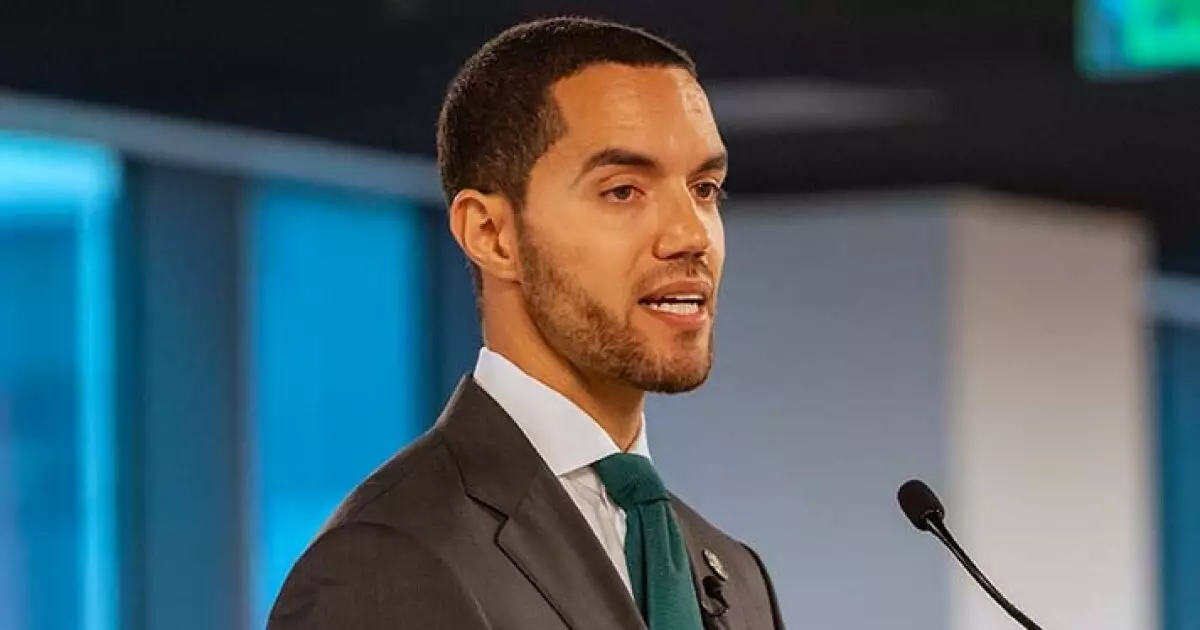In the rapidly evolving landscape of municipal finance, the city of Houston has found itself embroiled in a controversy that raises serious questions about ethical governance and fiscal responsibility. The verbal clash between Mayor John Whitmire and city Controller Chris Hollins over potential conflicts of interest related to corporate sponsorships at an upcoming investor conference ignites a critical dialogue about transparency in city operations. As both leaders, newly elected and still finding their footing in office, offer conflicting assessments of the situation, it is essential to unearth the implications of this disagreement not only for the officials involved but for the city’s financial integrity as a whole.
At the heart of Whitmire’s allegations is a stark accusation of a “pay-to-play” scheme orchestrated by Hollins. The mayor voiced concerns about the solicitation of sponsorships from municipal bond firms, suggesting that the monetary contributions ranging from $10,000 to $100,000 could compromise the integrity of the bond selection process and the city’s overall financial health. He argues that the very act of asking for corporate sponsorships creates an unethical taint; it invites questions about whether financial contributions would unfairly influence the selection of underwriters.
In contrast, Hollins vehemently defended his actions, deeming the mayor’s claims “baseless.” He delineated the legal boundaries by explaining that bond contracts can only be awarded by the mayor and city council, dismissing any insinuation that he possesses undue influence in these decisions. This exchange prompts us to question: what constitutes ethical behavior in the solicitation of sponsorships, particularly when public trust is intertwined with financial dealings?
The Broader Context: Historical Precedents
Interestingly, Whitmire pointed out that previous iterations of Houston’s investor conferences operated without corporate sponsorships, creating a precedent that strengthens his argument. In contrast, Hollins pointed to the practices of other cities, such as Chicago, where similar events had also taken place without external sponsorships. The disparity in these approaches raises an important question: should municipal leaders adhere to established traditions, or is it time to adopt new funding models to enhance operational budgets and programming?
While many might see the fundraising aspect as a necessary evolution in municipal finance, opponents fear it heralds a shift toward a potentially more ethically ambiguous landscape. The stakes in such discussions are heightened by the recent downgrades of Houston’s financial outlook by national rating agencies, a consequence that both leaders are keenly aware could impact the city’s capacity to secure funding in the future.
The clash between Whitmire and Hollins comes at a time when both leaders are expected to forge a united front and work collaboratively to address the city’s pressing financial challenges. Instead, their ongoing conflict exposes a rift that, if left unchecked, could have dire implications for the credibility and functionality of Houston’s leadership.
The broader narrative here accentuates the critical nature of ethical governance. As local governments are increasingly tasked with managing complex financial instruments and public resources, their leaders must continuously engage in self-reflection. They must assess not just the legality of their actions, but also whether their decisions honor the ethical standards expected by the communities they serve.
In light of the ongoing controversy, the call for an investigation into potential ethics violations by the Office of the Inspector General marks an essential step towards transparency. Such audits serve as a necessary safeguard against the dangers of erosion of public trust. As Mayor Whitmire has indicated, engaging with outside law enforcement in this matter might yield a more robust framework for accountability that can both protect the city’s interests and maintain the public’s faith.
However, while these measures are necessary, they also seem to highlight the need for a systemic overhaul in how municipal operations are conducted. The ultimate question arises: how can city officials ensure that all activities, especially fundraising linked to public finance, align with ethical practices and avoid even the appearance of impropriety?
As the dust settles from this recent political skirmish, it is clear that both Mayor Whitmire and Controller Hollins have critical roles in determining the future trajectory of Houston’s governance. Their divergent viewpoints not only reflect personal ideologies but also underscore the broader challenges facing cities grappling with ethical dilemmas in financial processes. Moving ahead, both leaders must prioritize rebuilding trust, fostering accountability, and setting a precedent for ethical governance that can fortify the city’s financial future. The effectiveness of such measures will be pivotal in shaping Houston’s reputation and stability in the eyes of both residents and investors.

